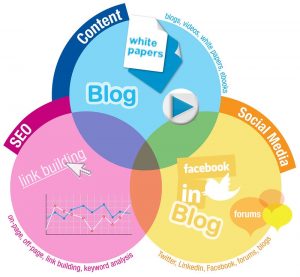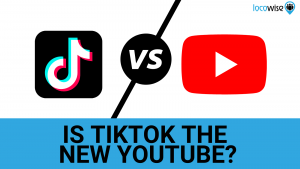
One of the critical key performance indicators that digital marketers rely on is the number of visitors to your website. The more the merrier—you’re drawing eyeballs, and the more views you get, the more leads you’ll have. Keep increasing your website visitors each month and eventually your sales team will be overwhelmed with qualified leads.
Except when they aren’t.
Visitors don’t bring revenue—customers do. Want more revenue? What you need to do is target a smaller audience, not a bigger one. Here’s why.
1. Less work for your sales team
Targeting a smaller, niche audience means your sales team doesn’t have to waste their time eliminating a mountain of unqualified leads. Because you’re honing in on a very specific crowd, you’ve automatically filtered out the red herrings and the majority of your leads will already be qualified. So your sales team can spend time selling instead of weeding out junk.
2. Greater ROI on your marketing efforts
Let’s say you’ve got 1,000 visitors per month with a conversion rate of 0.2% (most conversion rates are less than 1%). If your goal is to earn 100 leads per month, you’ll need to increase your site visits to 50,000. That’s an enormous task for any marketing team.
But, if you focus your efforts on targeting only the people who will buy from you, you could reasonably see a 2% conversion rate, which only requires 5,000 quality visitors per month to win 100 leads. That’s a lot less work for your marketing team—and it’s a lot less expensive.
3. Optimized SEO and higher Google rankings
If you’re using generic keywords for SEO, you might draw a larger audience, but you’ll also have a much harder time ranking high in search results. Instead, focus on very specific long-tail keywords that target a smaller—but highly interested—population of visitors.
Long-tail keywords have less competition and a lot more value. Imagine you’re a bakery using the keyword “pie.” You’re going to have a ton of competition and you’ll be listed among 553 million results that include pie recipes, history of pies, pizza pies, and a children’s game called Pie Face. But if you choose long-tail keywords like “authentic pecan pie bakery,” you’ll only be competing with 87,000 results and you’ll have a much easier time ranking on the first page.
4. More effective PPC
When it comes to PPC, it’s not helpful to have a lot of impressions either. Thomas Heed of EverEffect said, “It’s much better to optimize for click-through rate and conversion rate.” EverEffect helps their clients to reduce advertising spend, but to increase their revenue. In other words, their clients get fewer views and fewer clicks overall, but the clicks they get are a lot more valuable. Thomas mentioned a recent client as an example: “We reduced their advertising cost by 15% year-over-year. The year before that, we reduced it by 33%. But this year, their revenue is up 56% versus last year. We reduced their advertising costs by 15% and their revenue has gone up 56%.
“We have another client that doesn’t really have a budget sufficient to compete in their market,” Thomas said. “It’s difficult to explain that if we’re not going to increase the budget, then we need to stop aiming at too many targets. Otherwise, it downgrades everything we do for them.”
5. Greater authority within your niche
Not everyone is your ideal customer. You’re not selling to just anyone who wants a pie—you’re selling to people in your local community who appreciate artisanal quality and authentic homemade desserts. Your customers want only the best ingredients and they’re looking for the kind of unique service add-ons you provide.
That’s a small, but extremely important, audience. When you target that specific audience with a single message they resonate with, you can own that niche as the preeminent business with authority.
6. Delight your customers
Targeting a small and specific audience means you’re providing content that’s designed just for them. You understand their questions, their needs, their pains—and so your content is incredibly valuable to your customers. That creates delight, and they become more motivated to buy from you. Meanwhile, since you’re not trying to be everything to everybody, you’re disappointing fewer people who come to your site expecting to find something you don’t provide.
Visitors don’t bring revenue—customers do. And to get customers, you need to convert those visitors into leads. If you’re spending all your marketing efforts on drawing more visitors, you’ll neglect the more important metric: lead conversions.
It doesn’t matter how many visitors you have if your visitor-to-lead conversion rate stinks. But if you focus on targeting the right audience instead of attracting more visitors, you’ll see your conversion rate soar even though your number of visitors drops.
Digital & Social Articles on Business 2 Community
(117)









